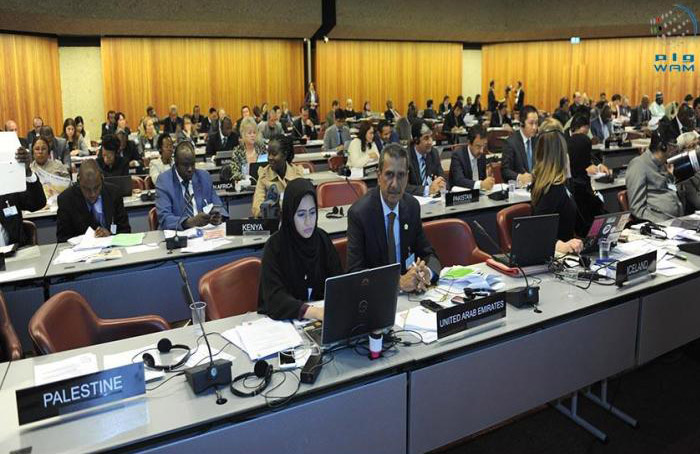ID :
384446
Wed, 10/21/2015 - 09:33
Auther :
Shortlink :
https://www.oananews.org//node/384446
The shortlink copeid
UAE MP calls for international agreement to prevent abuse of internet by terrorists

Geneva, 21st October, 2015 (WAM) -- A UAE MP has singled out diversity of cultures, political crises and criteria for enforcing laws on use of internet and human rights as factors that are most pressing challenges to democracy in the digital era and underscored that all legislation in the field of surveillance, privacy and personal data must be based on the principles of legality, transparency, proportionality, necessity and the rule of law.
Ali Jasim, a member of the Federal National Council (FNC) and member of the IPU Group, said a draft resolution being debated by the IPU's Standing Committee on ''Democracy in the digital era and the threat to privacy and individual freedoms,'' calls on parliaments to review their national frameworks and State's practices with a view to promoting and increasing the possibilities for civilian participation in the digital era, free exchange of information and ideas and equal access to the Internet. With a view to enhancing democracy in the 21st century, it encourages parliaments to remove all legal limitations on free speech and flow of information and uphold the principle of Net neutrality.
Jasim said parliaments also need to draft an international internet agreement to prevent terrorists and terrorist organisations from abusing the internet.
''While national security arguments will invariably be advanced that diverse digital technology tools may threaten the security and well-being of a State, parliaments need to review their capacity to oversee all executive action and ensure that a balance is struck between national security and individual freedoms so as to ensure that measures taken in the name of national security and counter-terrorism comply strictly with human rights, and avert any threats to democracy and human rights,'' the draft resolution reads.
The draft resolution acknowledges the interdependence between democracy and the right to privacy, freedom of expression and information and an open and free Internet, and universal recognition of the right to privacy, its protection in international law and expectations of citizens around the world that the right to privacy is safeguarded both in law and in practice.
It also urges parliaments to carefully review national laws and the practices of government agencies and/or surveillance organisations acting on their behalf so as to make sure that they comply with international law and human rights, especially as they relate to the right to privacy, and calls on parliaments to guarantee, as part of that review, that private companies will not be forced to collaborate with the authorities on practices that impair their customers’ human rights.
The draft resolution underscores that privacy protections must be consistent across domestic and international borders and calls on parliaments to make sure that privacy protections in national law cannot be bypassed by reliance on secretive and informal data-sharing agreements with foreign States or multinationals.
The proposed resolution strongly urges parliaments to review and establish new, comprehensive and independent oversight mechanisms where needed and include them in the legal framework. The resolution also stresses that parliaments must investigate any shortcomings in their oversight function and the reasons behind them, making sure that their oversight bodies, such as parliamentary committees and parliamentary ombudsmen, have sufficient resources, proper authorisations and the requisite authority to review and publicly report on the actions of government agencies and/or surveillance agencies acting on their behalf.
The IPU said the objective and scope of the draft resolution is to empower democracy in the digital age, to protect individual freedoms and ensure respect for and the protection of human liberty and dignity, as specified by law.
The draft resolution seeks to identify weaknesses and areas that need to be strengthened or addressed regarding the democratic process and citizens’ rights. It seeks to recommend where and how parliaments and parliamentarians need to be further empowered and informed so as to act accordingly. Access to information is a prerequisite for any meaningful democracy, where policymakers, legislators and the public alike are well-informed. A parliament that does not have extensive knowledge of the methods and policies used by the national security agencies cannot adequately safeguard that sector of the government, nor can it hold decision-makers and actors within national security agencies to account. – Emirates News Agency, WAM - http://www.wam.ae/en/news/emirates/1395286954194.html





